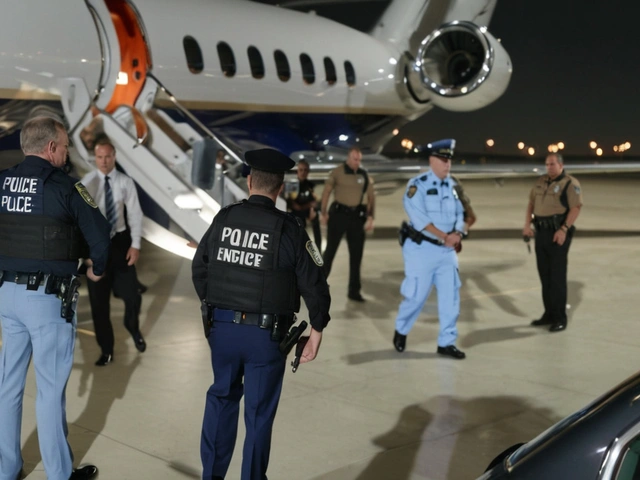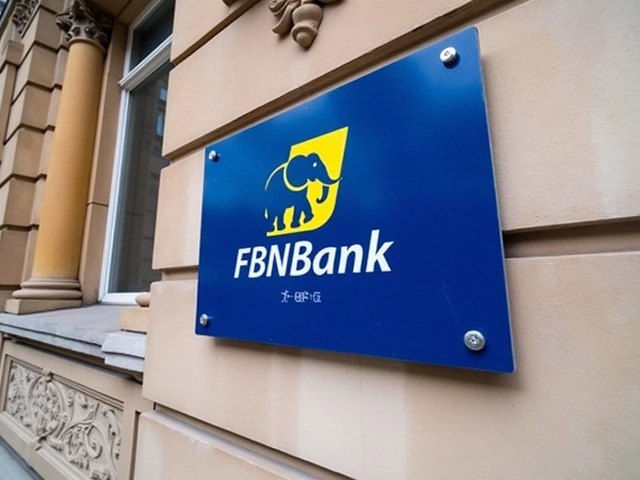Arrest of 'El Chapo's' Son and Sinaloa Cartel Co-Founder in Texas Sparks Major Break in Drug Trafficking
Arrests Shake Sinaloa Cartel Amid Escalating Drug Crisis
The recent arrest of Joaquín Guzmán López, the son of the infamous Joaquín 'El Chapo' Guzmán, and Ismael Zambada García, a co-founder of the Sinaloa Cartel, marks a significant development in the ongoing U.S. offensive against drug trafficking. U.S. Attorney General Merrick Garland made the announcement on Thursday, revealing that the two high-profile figures were apprehended in El Paso, Texas. The Sinaloa Cartel has long been one of the most dominant and dangerous criminal enterprises in the world, with far-reaching influences spanning both Mexico and the United States.
Joaquín Guzmán López, often referred to as a key player in the cartel, along with Zambada García, faces a myriad of serious charges. Among these are accusations related to the production and distribution of lethal synthetic drugs such as fentanyl and methamphetamine. These substances have been at the forefront of the drug epidemic wreaking havoc across the United States. The arrest of these figures not only signifies a pivotal victory for law enforcement but also sheds light on the unwieldy and enduring reach of the Sinaloa Cartel.
The notorious Joaquín 'El Chapo' Guzmán was captured in Mexico, subsequently extradited to the United States, and is currently serving a life sentence plus an additional 30 years. This was the outcome of a grueling trial concluded in New York in 2019. Despite his incarceration, 'El Chapo's' legacy continues to resonate powerfully within the cartel, with his sons, collectively known as 'Los Chapitos', taking over the helm of his criminal enterprises.
The Sinaloa Cartel's Role in the Synthetic Drug Epidemic
The Sinaloa and Jalisco cartels have relentlessly fueled the synthetic drug crisis, as underscored by the Drug Enforcement Administration's (DEA) 2024 National Drug Threat Assessment. Fentanyl, a synthetic opioid reportedly fifty times more potent than heroin, has become the leading cause of overdose deaths in the United States. Last year alone, the Centers for Disease Control and Prevention (CDC) reported approximately 107,543 fatal drug overdoses, with an estimated 74,702 of these deaths attributed to synthetic opioids like fentanyl.
According to the DEA report, the Sinaloa Cartel’s sophisticated operations involve the manufacturing of fentanyl in clandestine labs located in Mexico. From there, the potent drug is trafficked across the border into the U.S., significantly contributing to the staggering overdose statistics. Despite announced directives from leaders of both the Sinaloa and Jalisco cartels in 2023 to halt fentanyl trafficking, the DEA deems these claims as likely being public relations strategies, rather than genuine efforts to curtail drug distribution.
This ongoing fentanyl crisis brings to the forefront the ruthlessness of cartel operations and their readiness to endanger lives for profit. Garland’s announcement accentuated the Justice Department's commitment to holding every cartel leader, member, and associate accountable for perpetuating this crisis. It is evident that federal authorities are doubling down on their efforts to combat this epidemic, through concerted crackdowns on these international crime syndicates.
The Enduring Legacy of 'El Chapo'
Even after 'El Chapo's' imprisonment, his empire’s shadow looms large, largely managed and expanded by his sons. Joaquín Guzmán López, Ovidio Guzmán López, Iván Guzmán Salazar, and Alfredo Guzmán Salazar have been pivotal in leading the cartel’s operations and extending its influence. Ovidio Guzmán López was also arrested earlier this year in Mexico and extradited to the United States to face charges related to drug trafficking and money laundering. Iván and Alfredo, however, continue to evade capture.
The DEA’s 2024 report meticulously details the structure and hierarchy within the Sinaloa Cartel, with 'Los Chapitos' steering one of its most influential factions. Under their leadership, the cartel has intensified its focus on the production of fentanyl, underscoring the deadly consequences of this strategic pivot. The tactical maneuvering within the cartel reflects a calculated effort to continue and expand the legacy left by their father.
International Cooperation and the Fight Against Cartels
The arrest of Guzmán López and Zambada García underscores the importance of international cooperation in the fight against drug trafficking. The U.S. and Mexican law enforcement agencies have been working tirelessly together, sharing intelligence and resources to dismantle these formidable criminal networks. The mutual efforts are crucial in ensuring that there are no safe havens for such notorious figures, irrespective of the borders they attempt to cross.
Given the complex nature of cartel operations, stretching into seemingly untouchable domains, the collaboration between the two countries sends a clear message about the unwavering resolve to combat and curtail these illicit activities. It is a testament to the intensive, high-stakes operations carried out by both nations to bring about substantial victories like these recent arrests.
The Road Ahead: Bringing Justice and Building Resilience
While these arrests are significant victories, they also serve as a stark reminder of the road that lies ahead. The Sinaloa Cartel is not confined to a handful of leaders; it is a sprawling network with various factions and operational hierarchies. Law enforcement faces the intricate challenge of dismantling this sophisticated web, piece by piece.
The fentanyl crisis, driven heavily by cartel activities, calls for a multi-faceted approach. Greater emphasis on educational campaigns, rehabilitation programs, and international cooperation is imperative to curbing the epidemic. The Justice Department, DEA, and global counterparts must persistently work in tandem to plug the flow of synthetic drugs, aiming to save countless lives from the throes of addiction and overdose.
As the battle against the Sinaloa Cartel and similar entities continues, the unyielding spirit of law enforcement and their commitment to justice stands as the beacon of hope. The capturing of Guzmán López and Zambada García is a significant step, yet it is part of a much broader, ongoing campaign to bring lasting change. With continued pressure, coordinated efforts, and unrelenting dedication, the eventual dismantling of these cartels becomes not just a hope, but an attainable reality.







